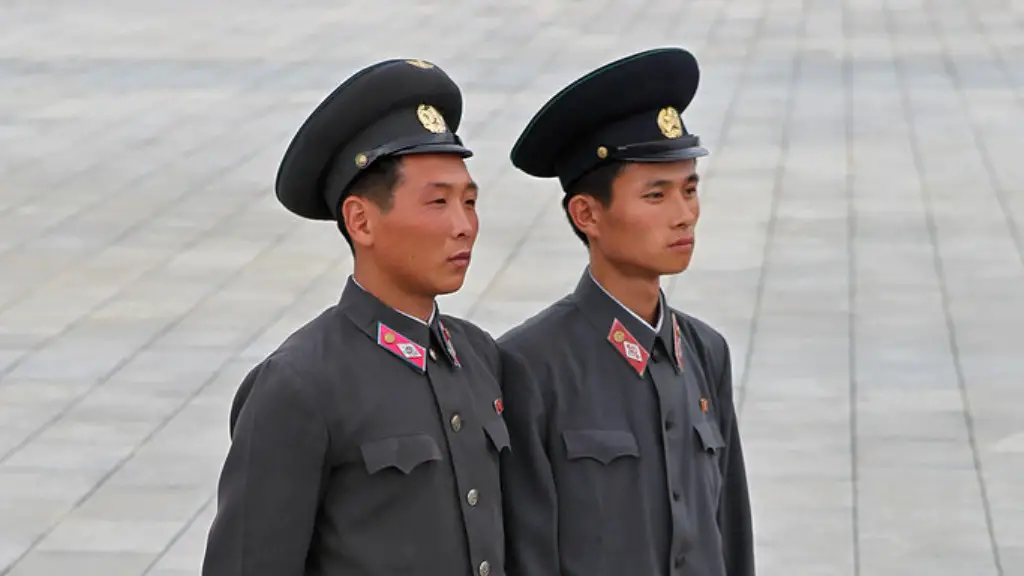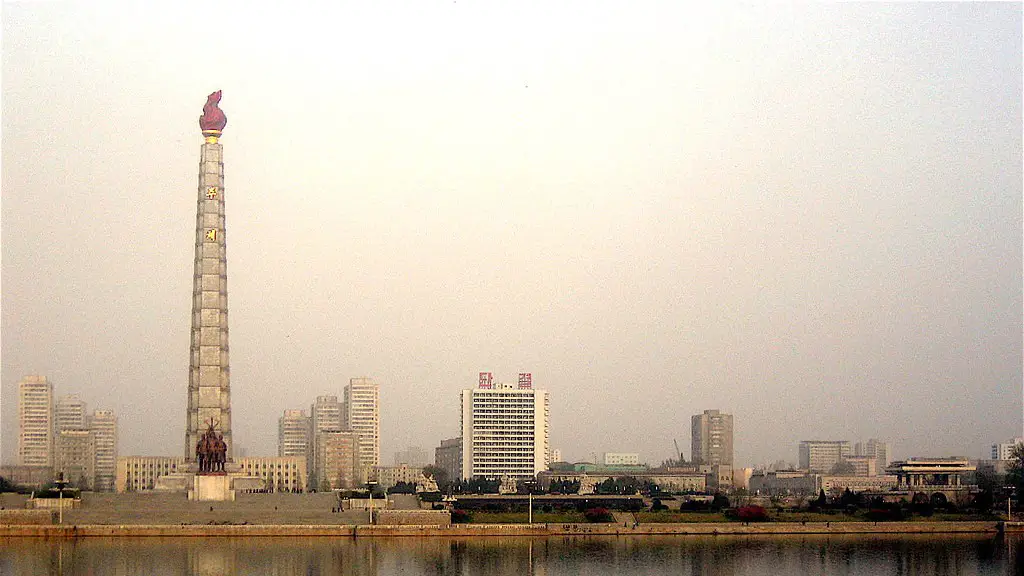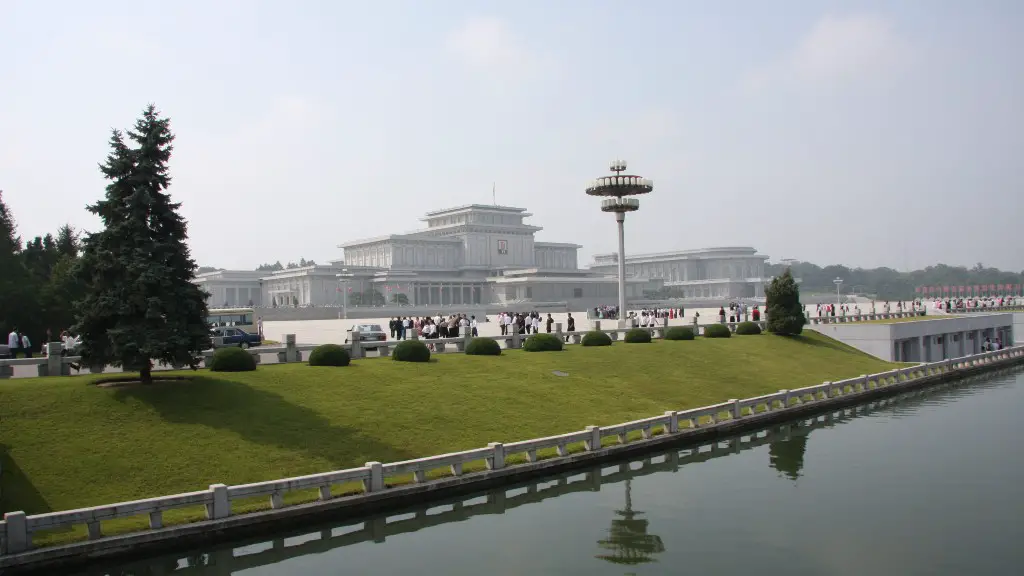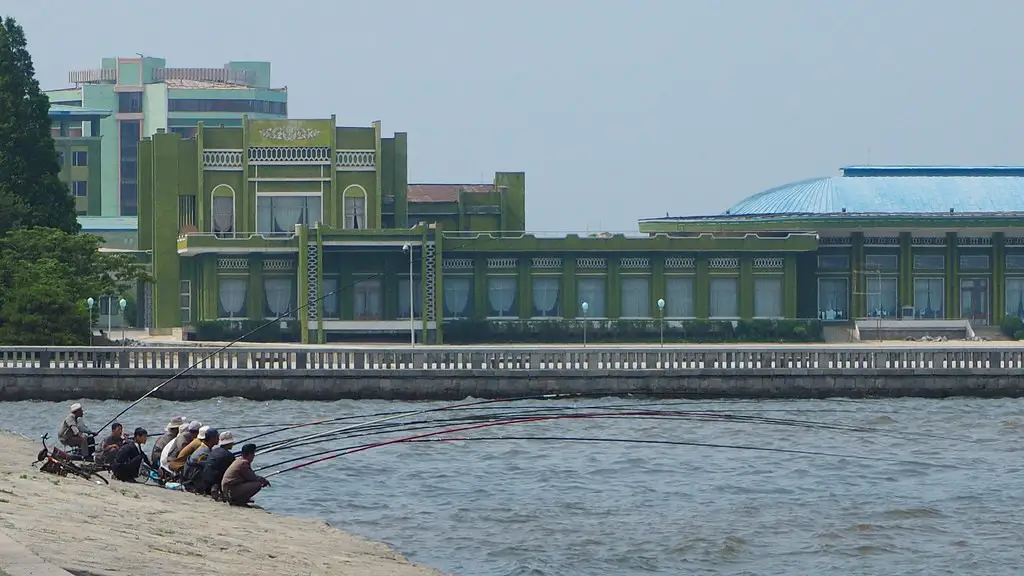Where Would North Korea Hit?
In recent months, North Korea has conducted multiple ballistic missile tests in defiance of international warnings. While the country has said that the tests are meant to improve its nuclear capability, there is concern that the regime might be willing to use this capability to make good on its threats. The question on everyone’s minds is: where would North Korea hit with missiles if it comes to that?
To understand the strategic targets that North Korea might have in mind, it is important to look at the current state of their nuclear arsenal. According to expert analysts, North Korea likely has a substantial amount of medium-range ballistic missiles that could reach targets within South Korea and Japan, as well as some of the US military bases in those countries. In addition, some of their missiles are believed to be able to reach Guam and the US West Coast. In short, North Korea likely has the capability to reach any territory in the region it deems as worthy of a strike.
Military experts suggest that North Korea would likely target US military assets in South Korea and Japan, as well as US-affiliated entities such as US embassies in the region. The North Korean leadership has pledged to “reduce America to ashes” if they perceive a threat, and these assets could be prime targets. In addition to military assets, experts warn that North Korea could also target South Korean or Japanese cities if they perceive them as a threat. In particular, Seoul and Tokyo could bear the brunt of a North Korean attack.
However, it is important to note that North Korea’s capabilities are largely unknown, and that the regime has yet to demonstrate a capability to successfully deliver a nuclear weapon to its intended target. Therefore, while the regime might theoretically be able to reach US military and civilian targets, it may not be able to do so with any real accuracy. For this reason, many experts suggest that the most likely targets for a North Korean missile strike are those in close proximity to their borders.
Given that the situation is always changing, it is hard to determine the exact targets that North Korea might aim for. What is certain, however, is that the regime is unpredictable and poses a real threat to the region. It is essential, therefore, that all actors in the region remain vigilant and prepared to respond decisively to any potential North Koreanattack.
The US Response
The US has remained firm in its response to North Korea’s nuclear developments. The US has imposed a number of economic sanctions on the regime, aimed at curbing its nuclear ambitions, and has also increased its military presence in the region. In addition, the US has persuaded China, North Korea’s closest ally, to take a more active role in the denuclearization process. While many experts believe that these efforts may not be enough to deter the North Korean regime from engaging in aggression, the US is hoping that its presence will act as a strong deterrent.
The US and its allies have also placed an emphasis on diplomacy and dialogue as a means to resolve the escalating crisis. Thus far, efforts have been largely unsuccessful, with North Korea continuing to launch ballistic missiles in defiance of international warnings. However, the US remains committed to finding a peaceful resolution to the situation and has expressed a willingness to negotiate with the North Korean regime.
In the unlikely event that North Korea does decide to launch a missile attack, the US is prepared to respond with military force if necessary. While experts warn against such a scenario, the US has made it clear that it will not hesitate to use military force to defend its allies and interests if necessary.
Regional Reactions
Countries in East Asia are also taking measures to prepare for a possible attack from North Korea. Japan, in particular, has been stockpiling food, fuel and other supplies to prepare for an emergency, and the government has begun to educate citizens about the threat posed by possible nuclear attack. South Korea, for its part, has increased its defense budget and conducted military drills in the region in preparation for a possible attack.
The regional reaction to North Korea’s weapons tests has also included moves by China, North Korea’s closest ally. While China has strongly condemned the tests and has even agreed on several occasions to impose UN sanctions on North Korea, some analysts believe that China’s stance on the matter may be shifting. Late last year, the country’s leader, Xi Jinping, visited North Korea and stated his willingness to negotiate with the regime. While this could be interpreted as an effort to defuse the current situation, it could also be the beginning of a shift in China’s stance on the issue.
The threat posed by North Korea is not limited to East Asia; neighboring countries such as Russia and even the US have also expressed concern. Russia, in particular, has indicated that it is willing to work with the US in order to find a diplomatic solution to the situation. While it is unclear how events will unfold, the international community is united in its desire to find a peaceful solution to the crisis and prevent further escalations.
International Reactions
In response to North Korea’s increasing nuclear capabilities, the international community has taken a unified stance against the regime. Countries such as the US, China and Russia have all imposed economic sanctions on North Korea in an effort to force the regime to abandon its nuclear ambitions. At the same time, the US and its allies have urged China to take a more active role in the denuclearization process.
The UN Security Council has also been involved in efforts to resolve the situation. The Council has imposed a series of sanctions on North Korea and has strongly condemned the regime’s illegal nuclear tests. However, the efforts of the Security Council have failed to deter the North Korean regime from continuing its development of nuclear weapons.
The US and its allies have also sought to pressure North Korea through diplomatic means. The US, for example, has repeatedly prevented the regime from accessing the global financial system, and has also imposed travel bans on high ranking members of the regime. Meanwhile, the US and its allies have also sought to engage the North Korean leadership in dialogue in the hopes of finding a peaceful resolution to the situation.
Impact on East Asia
The escalating tensions between North Korea and its neighbors have had a major impact on East Asia. Countries such as South Korea and Japan have invested heavily in defense spending, while citizens have become increasingly concerned with the safety and security of their families and livelihoods. In South Korea, the situation has had a particularly acute impact, with the country’s economy being heavily affected by the sanctions imposed on North Korea and the military drills conducted by US and South Korean forces.
The situation has also had an impact on China, North Korea’s closest ally. While China has largely avoided becoming involved in the conflict, it has been forced to take on a more active role in the denuclearization process. The country has also sought to maintain its close relationship with North Korea in the face of international pressure.
The conflict has also had a major impact on the international community. Countries such as the US and Russia have sought to mediate the situation, while the UN has imposed a series of sanctions on North Korea in an effort to curb its nuclear ambitions. Unfortunately, thus far these efforts have failed to resolve the conflict and the situation remains highly volatile.
Conclusion
North Korea’s nuclear ambitions continue to pose a major threat to the region and the entire world. While the regime’s intentions remain unclear, it is essential that strong measures are taken to prevent further escalation of the situation and to protect the safety and security of the region’s citizens. All actors – domestic and international – must remain vigilant and prepared to respond decisively to any potential North Korean aggression.



